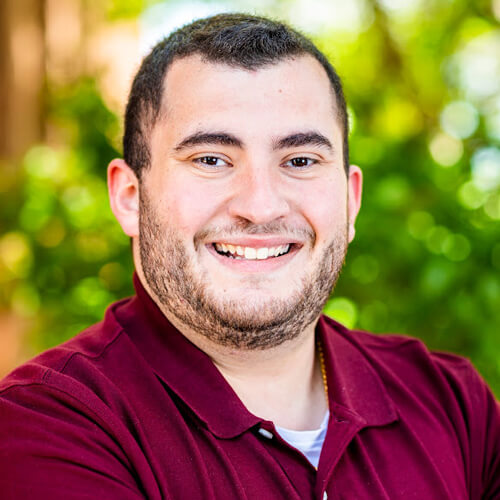
Master of Arts in Education – School Counseling
Department of Clinical Therapeutic Programs
College of Education & Applied Human Sciences
Master of Arts in Education – School Counseling
Department of Clinical Therapeutic Programs
College of Education & Applied Human Sciences
On-Campus
Program
60 Credit Hours
to Graduate
Full-Time, In-State Tuition
$419-$541 Per Credit Hour
Free Books
for All Students
Empower Others to Accomplish Their Goals
Prepare to become a state-certified school counselor and help students reach their full potential. EKU’s Master of Arts in Education in School Counseling prepares professional counselors to work in PK-12 school settings and with diverse student populations and their families to support their academic, career, and social-emotional needs and wellbeing as well as to be leaders in their school buildings and districts.
*EKU is offering active Kentucky teachers a discounted tuition rate of $419 per credit hour in appreciation of their dedicated service to youth. To see eligibility criteria and limitations, visit the College of Education and Applies Human Sciences for details.
Learn More
Career Outlook
Employment of school and career counselors and advisors is projected to grow 5 percent from 2022 to 2032.
– U.S. Bureau of Labor Statistics
Why EKU?
*Individuals typically meet these requirements in their last or second to last semester of their program. Option 6 cannot be extended before all of these requirements are met. Option 6 is not a pathway for those needing to reinstate a lapsed certification.
Curriculum & Admission
EKU’s school counseling curriculum prepares you for a rewarding career that will allow you to improve the lives of others and become a leader in your field.
School counseling courses are taught by instructors with real-world experience and designed to provide skill sets that can be applied to diverse individuals with unique needs. Courses include counseling theory and practice; process and basic techniques of counseling; principles, standards, and practices of contemporary school counseling; group counseling; child and adolescent counseling; counseling diverse populations; lifestyle and career counseling; crisis and grief counseling; diagnosis and treatment; research and program evaluation; and tests and measurements.
Enrolling & Advising Information
EKU’s College of Education and Applied Human Sciences is committed to delivering high-quality enrollment and academic advising for our students. We strive to create an atmosphere of mutual trust and meaningful engagement to help students reach their academic goals and have a rewarding educational experience.
Interested in enrolling? Reach out to our college enrollment counselor today.

Additional Contact Info
Admissions: 859-622-2106
Academic Testing: 859-622-1281
Big E Central (Financial Aid & Student Account Services): 859-622-2361
Military & Veterans Affairs Office: 859-622-2345
Student Stories & Features
Quick Links
Upcoming Events
| April 2025 | ||||||
|---|---|---|---|---|---|---|
| Mo | Tu | We | Th | Fr | Sa | Su |
| 31 | 1 | 2 | 3 | 4 | 5 | 6 |
| 7 | 8 | 9 | 10 | 11 | 12 | 13 |
| 14 | 15 | 16 | 17 | 18 | 19 | 20 |
| 21 | 22 | 23 | 24 | 25 | 26 | 27 |
| 28 | 29 | 30 | 1 | 2 | 3 | 4 |
| 5 | 6 | 7 | 8 | 9 | 10 | 11 |
News & Updates
EKU Climbs the Ranks for Best Public Affairs Program
Related Programs

M.S. in Psychology – Experimental
Common Job Titles: clinical psychologist, rehabilitation counselor, human resources specialist, market researcher
Modalities: on-campus
Credit Hours: 33

Master of Social Work (MSW)
Common Job Titles: MSW, therapist
Modalities: online
Credit Hours: 31-62
Contact Information
Department of Clinical Therapeutic Programs
Wallace Building
Room 201
4366 Kit Carson Drive
Richmond, KY 40475
859-622-1125
cou.csdoffice@eku.edu



